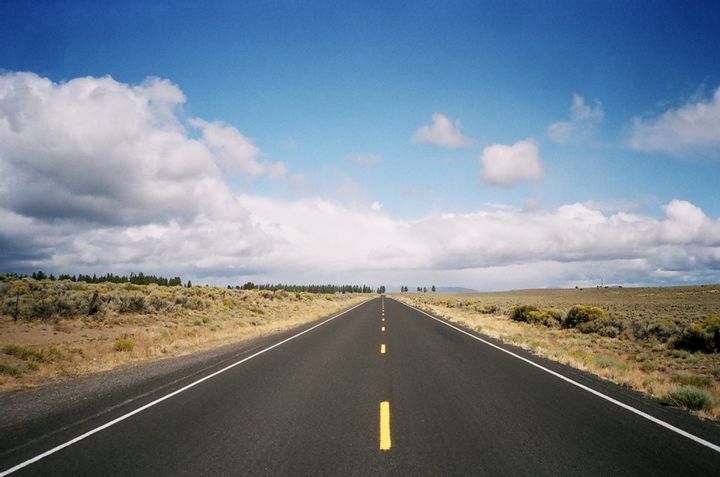Spring 2010
Paths of Progress
Freedom to travel is the essence of progress, and the open road remains the most alluring mode of transportation around the world.
When I traveled to the struggling ski-resort town of Davis, West Virginia, this past winter, all the locals I met seemed to want to know how I had gotten there. They talked about the highway that has been inching their way for years. Most looked forward to the flood of tourists and prosperity they thought the project would bring, but others saw only the prospect of unwelcome change. Although Ted Conover writes about far more exotic places than hard scrabble West Virginia in The Routes of Man, he sees its conflict everywhere: The coming of new roads distills the modern dilemma over progress and its discontents.
Somewhere in Conover’s mind is the analytical intelligence of a social scientist, but his book is mostly a bracing immersion in a half-dozen places that have been or will be changed by highways, with a few brief excursions into subjects such as the history of Roman road building. In Africa, he joins truckers hauling freight between the Kenyan port of Mombasa and the African interior, the route many believe carried AIDS to the wider world. China, the West Bank, and the Peruvian Amazon are among his other destinations.
In the tiny Himalayan village of Reru, the village headman consults a Tibetan Buddhist monk before giving the signal that a small group can set out on the treacherous Zanskar River—the ice “just the frozen skin of a hibernating giant below”—for the outer world. In the wintertime, the river is the only way to get to larger towns. Conover does not need to point out what we can plainly see: The road the Indian government is building to the Zanskar valley will undermine the authority of the headman and the monk, along with the villagers’ traditional culture.
There is a refreshing absence of sentimentality in Conover’s writing, but at times one wishes the social scientist in him would step forward with clipboard in hand and ask some direct questions. What do the villagers think about the oncoming road? The debate is left instead to a Swedish linguist who sees only purity in the Himalayan villages and corruption in the West, and a local teacher, who fiercely contends that the people of Reru are steeped in “too much culture, too much religion,” and lacking in the doctors, teachers, and new ideas that the road will bring. As for Conover, he is sad to see a local family replace its beautiful thatched roof with a corrugated metal one, but, he asks, can you tell people they must live with a leaky roof for the sake of their traditional culture? The linguist’s stance ultimately depends on an idealized, leak-free vision of Reru’s way of life.
In the West Bank, Conover joins a Palestinian student named Khaldoon as he negotiates the web of checkpoints, patrols, and limited-access high ways that are effectively restricted to Israeli settlers. (in his typically fair-minded way, however, he weaves in a sympathetic portrait of an Israeli officer.) Conover’s last book, Newjack (2000), was about Sing Sing prison, and he sees a similarity between the two places. By dividing space into “discrete pieces and forbidding or restricting movement between them,” the overseers can protect them selves while punishing the prisoners. “A blocked road,” Conover writes, “is thwarted intention.”
Roads are about freedom. In China, Conover rides shotgun with hard-living factory owner Zhu Jihong on a seven-day road trip with a group of joy-riding nouveaux riches, frequently reaching speeds of 100 mph or more. Like Americans in the 1950s and ’60s, the Chinese can’t get enough cars or build enough roads. Their high-speed rail projects may wow us, but in the next 25 years the government plans to build a freeway network bigger than the U.S. interstate system. The Chinese are going to create a riot of traffic and spew pollutants into the atmosphere, Conover concedes, but who are we to tell them they cannot have the kind of freedom—and fun—we have had? Freedom is the essence of progress, whether in China or West Virginia, and its costs and sheer, inescapable messiness are not reason enough to keep anyone at home.
* * *
Steven Lagerfeld is editor of The Wilson Quarterly.
Reviewed: "The Routes of Man: How Roads Are Changing the World, and the Way We Live Today" by Ted Conover, Knopf, 2010.
Photo courtesy of Flickr/Mathew Foster
